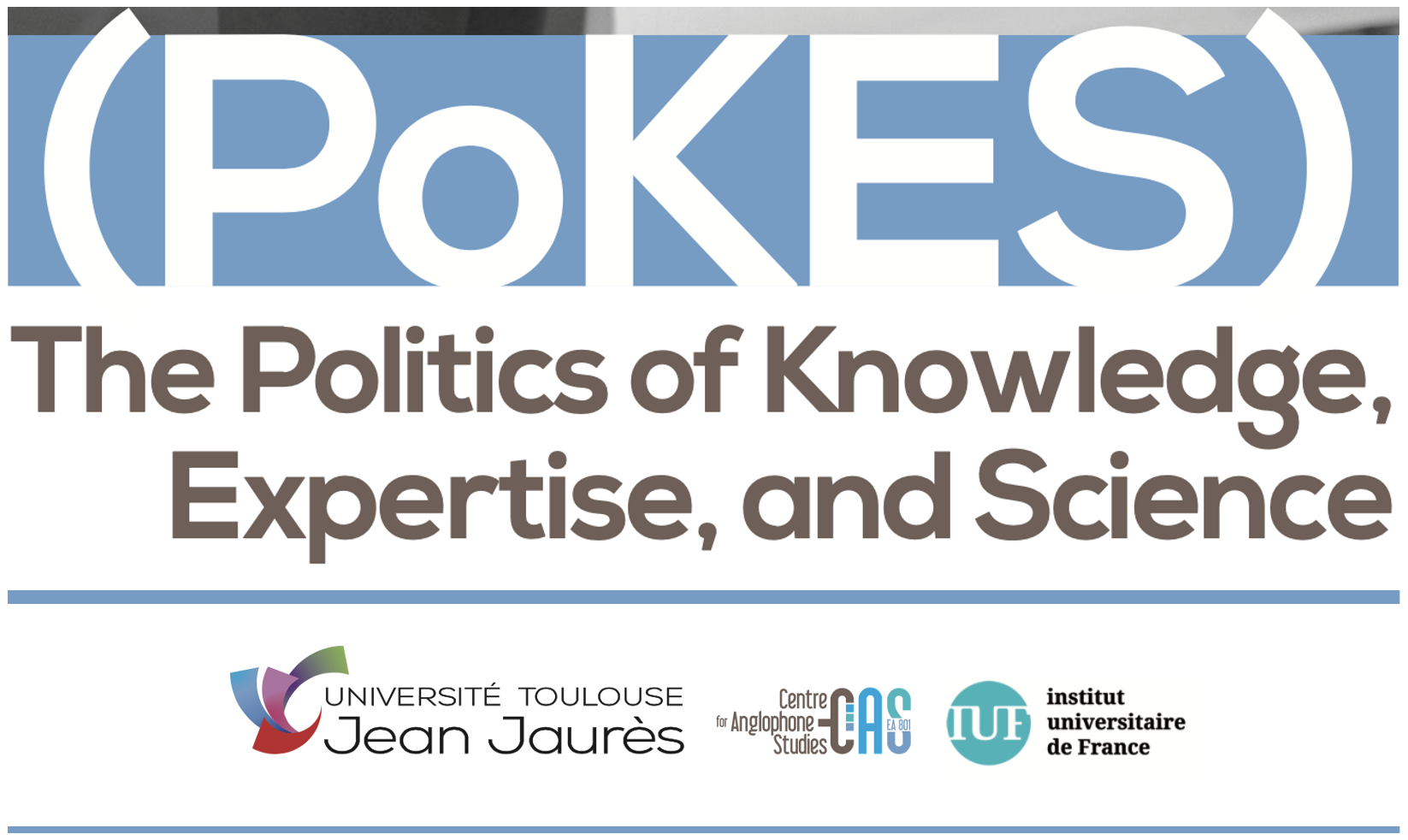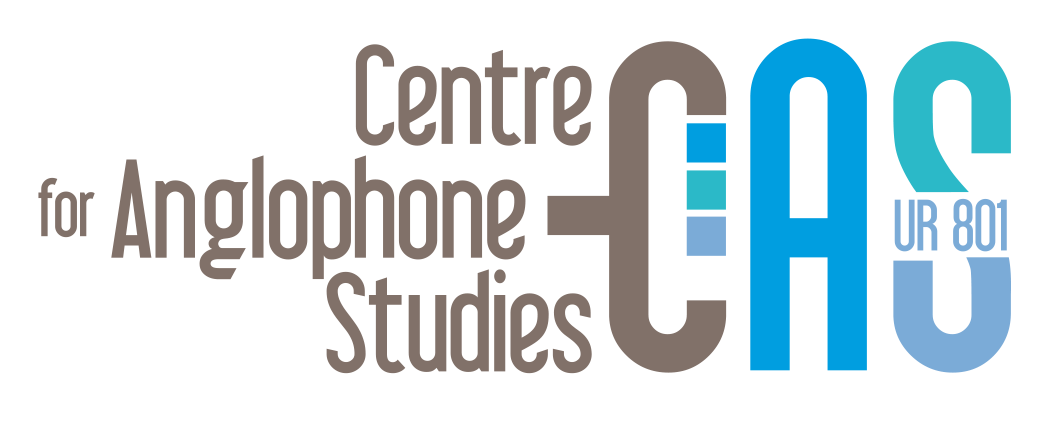-
Partager cette page
PoKES - The Politics of Knowledge, Expertise, and Science (English)

Organization
Michael Stambolis-Ruhstorfer
With the financial support of l’Institut Universitaire de France
Introduction
Experts have always provoked political and cultural ripples. In 2020, however, those ripples grew to the size of overwhelming waves as people across the globe scrambled to react to the threat of a deadly epidemic. Whether to ride those waves to new heights of popular appeal or swim against them, politicians and scientists alike are navigating very choppy water. For example, U.S. President Joseph Biden has stated that under his administration, “we are letting science speak again.” Demonstrating this commitment, Biden has elevated the White House Office of Science and Technology Policy to a Cabinet-level position and has publicly undone Trump-era directives restricting the public speech of scientists working for federal agencies. At the same time, other leaders, such as French President, Emmanuel Macron, have alternated between praising and bemoaning the advice of the scientific committees they themselves created to combat the epidemic. Their political rivals of all stripes are walking a fine rhetorical line between denouncing a government of experts against the popular will on the one hand and the dangers of anti-scientific conspiracy theories on the other. This seminar seeks to interrogate the uncomfortable, confusing, and consequential intersection of politics, science, and expertise, of which the Covid-19 crisis is only the latest dramatic example.Decision-makers—and those who pressure them—confront technical, ethical, and political uncertainty when navigating controversial issues. They often seek information they hope will provide guidance or authority. But what kinds of knowledge influence them to make a decision about questions whose very nature is a source of disagreement? Despite their classification as either primarily technical or purely moral, some social problems—especially those about the meaning, impact, or survival of human life—require policymakers to negotiate contested scientific and ethical terrain. Centering this question, this seminar examines how and why “experts,” broadly defined, as well as activists and policymakers interact and influence each other as they work to address contested, high-stakes issues in Europe and North America.
It invites scholarship that analyzes the political, scientific, and ethical dimensions of this fought terrain. Examples include but are not limited to climate change, public health, cultural studies, education, sexuality and gender-based rights claims, data surveillance, social justice and human rights, as well as economic policy. Current research tends to analyze some issues, such as climate change, from the angle of “politicized science” (McCright and Dunlap 2011) and to analyze others, including the rights of gender and sexual minorities, from the angle of “morality politics” (Engeli, Green-Pedersen, and Thorup Larsen 2012). This seminar seeks to start a conversation that aims to overcome that theoretical divide. By analyzing the interactions between experts, activists, and policymakers across a range of issues, it strives to bring to light the ways in which scientific and moral “authority” may undergird all of them. On a broader level, it centers the “epistemic dimension” (Verloo 2018) of contentious politics by looking at how knowledge producers, whether they be scientists and professionals or activists and “lay experts” (Epstein 1996), contribute to social change.
The relationships between experts, policymakers, and activists are important because they can transform previously ignored phenomena into urgent social problems that draw the critical scrutiny of media, policymakers, and the public (Eyal 2013; Tilly and Tarrow 2007; Zippel 2006). They shape how the public and policymakers perceive, say, the threat of climate change, the safety of vaccines, or the necessity to take gender-based violence seriously. We know that once an issue is identified, advocates on either side continue to work with experts to produce information to convince policymakers (Stone 2011). Scientific information can be especially effective—particularly in courts—because it can withstand critical scrutiny and project legitimacy (Jasanoff 2009). For this reason, social movements invest in academic allies (Armstrong and Bernstein 2008). This “triangular” relationship (Paternotte and Kollman 2013) between activists, experts, and policymakers creates “epistemic communities” (Smirnova and Yachin 2015) among people with the same political or intellectual outlook. Thus, for instance, climatologists and environmentalists in favor of carbon restrictions must compete against scientists and their political allies who deny that humans cause climate change. Some suggest that the capacity of these epistemic communities to push their agendas depends on the power they wield within their respective academic and political fields (Fligstein and McAdam 2012). Specifically, decision-makers may be more likely to believe experts whose claims represent their disciplinary consensus. Revealing the significance of this effect, activists try to influence scientific knowledge production so they can claim that research supports their goals (Jasanoff 2004). In addition, well-financed NGOs and think tanks (Béland and Cox 2010) allow epistemic communities to pool their resources despite marginalization they otherwise might face (Stambolis-Ruhstorfer 2020). Indeed, perhaps because of such resources, although climate change doubting scientists are a minority, they continue to have a strong voice in public debates (Dunlap and Jacques 2013). Yet, these networks also confront policymaking venues with different rules about the role of expertise, such as courts and legislatures, which vary according to national and transnational politic contexts. Therefore, work that is attentive to the contentious role of experts within their historical and institutional contexts in Europe and North America allows for especially fruitful insights (Beyers and Braun 2014; Ruzza 2004; Thornton, Ocasio, and Lounsbury 2012; Woll 2006).
This seminar welcomes talks from fields across the humanities and social sciences that examine the intersection between politics and knowledge production, understood broadly, within local or national contexts in North America, Europe, and/or supranational policymaking institutions, such as the E.U. or the United Nations. Comparative work that includes one of these contexts is especially encouraged but not required. Both theoretical and empirical work is welcome as well as that which addresses historical periods from the 18th century to today.
Bibliography
- Armstrong, Elizabeth A., and Mary Bernstein. 2008. “Culture, Power, and Institutions: A Multi-Institutional Politics Approach to Social Movements.” Sociological Theory 26 (1): 74–99. https://doi.org/10.1111/j.1467-9558.2008.00319.x.
- Béland, Daniel, and Robert Henry Cox, eds. 2010. Ideas and Politics in Social Science Research. Oxford, UK: Oxford University Press.
- Beyers, Jan, and Caelesta Braun. 2014. “Ties That Count : Explaining Interest Group Access to Policymakers.” Journal of Public Policy 34 (1): 93–121.
- Dunlap, R. E., and P. J. Jacques. 2013. “Climate Change Denial Books and Conservative Think Tanks: Exploring the Connection.” American Behavioral Scientist 57 (6): 699–731. https://doi.org/10.1177/0002764213477096.
- Engeli, Isabelle, Christoffer Green-Pedersen, and Lars Thorup Larsen, eds. 2012. Morality Politics in Western Europe. London: Palgrave Macmillan.
- Epstein, Steven. 1996. Impure Science: AIDS, Activism, and the Politics of Knowledge. Berkeley: University of California Press.
- Eyal, Gil. 2013. “For a Sociology of Expertise: The Social Origins of the Autism Epidemic.” American Journal of Sociology 118 (4): 863–907. https://doi.org/10.1086/668448.
- Fligstein, Neil, and Doug McAdam. 2012. A Theory of Fields. Oxford, UK: Oxford University Press.
- Jasanoff, Sheila, ed. 2004. States of Knowledge: The Co-Production of Science and the Social Order. New York: Routledge.
- ———. 2009. Science at the Bar: Law, Science, and Technology in America. Cambridge, MA: Harvard University Press.
- McCright, Aaron M., and Riley E. Dunlap. 2011. “The Politicization of Climate Change and Polarization in the American Public’s Views of Global Warming, 2001–2010.” Sociological Quarterly 52 (2): 155–94. https://doi.org/10.1111/j.1533-8525.2011.01198.x.
- Paternotte, D., and K. Kollman. 2013. “Regulating Intimate Relationships in the European Polity: Same-Sex Unions and Policy Convergence.” Social Politics: International Studies in Gender, State & Society 20 (4): 510–33. https://doi.org/10.1093/sp/jxs024.
- Ruzza, Carlo. 2004. Europe and Civil Society: Movement Coalitions and European Governance. Manchester, UK: Manchester University Press.
- Smirnova, Marianna Y., and Sergey Y. Yachin. 2015. “Epistemic Communities and Epistemic Operating Mode.” International Journal of Social Science and Humanity 5 (7): 646–50.
- Stone, Deborah. 2011. Policy Paradox: The Art of Political Decision Making. Third Edition. W. W. Norton & Company.
- Thornton, Patricia H., William Ocasio, and Michael Lounsbury. 2012. The Institutional Logics Perspective: A New Approach to Culture, Structure, and Process. Oxford, UK: Oxford University Press.
- Tilly, Charles, and Sidney G. Tarrow. 2007. Contentious Politics. Boulder, CO: Paradigm Publishers.
- Verloo, Mieke. 2018. “Gender Knowledge, and Opposition to the Feminist Project: Extreme-Right Populist Parties in the Netherlands.” Politics and Governance 6 (3): 20–30. https://doi.org/10.17645/pag.v6i3.1456.
- Woll, Dr Cornelia. 2006. “Lobbying in the European Union: From Sui Generis to a Comparative Perspective.” Journal of European Public Policy 13 (3): 456–69. https://doi.org/10.1080/13501760600560623.
- Zippel, Kathrin S. 2006. The Politics of Sexual Harassment: A Comparative Study of the United States, The European Union, and Germany. Cambridge, UK: Cambridge University Press.
French version

